30 years of hurt: England's untold stories behind Maradona's Hand of God
A new documentary revisits 1986 and the Mexico World Cup
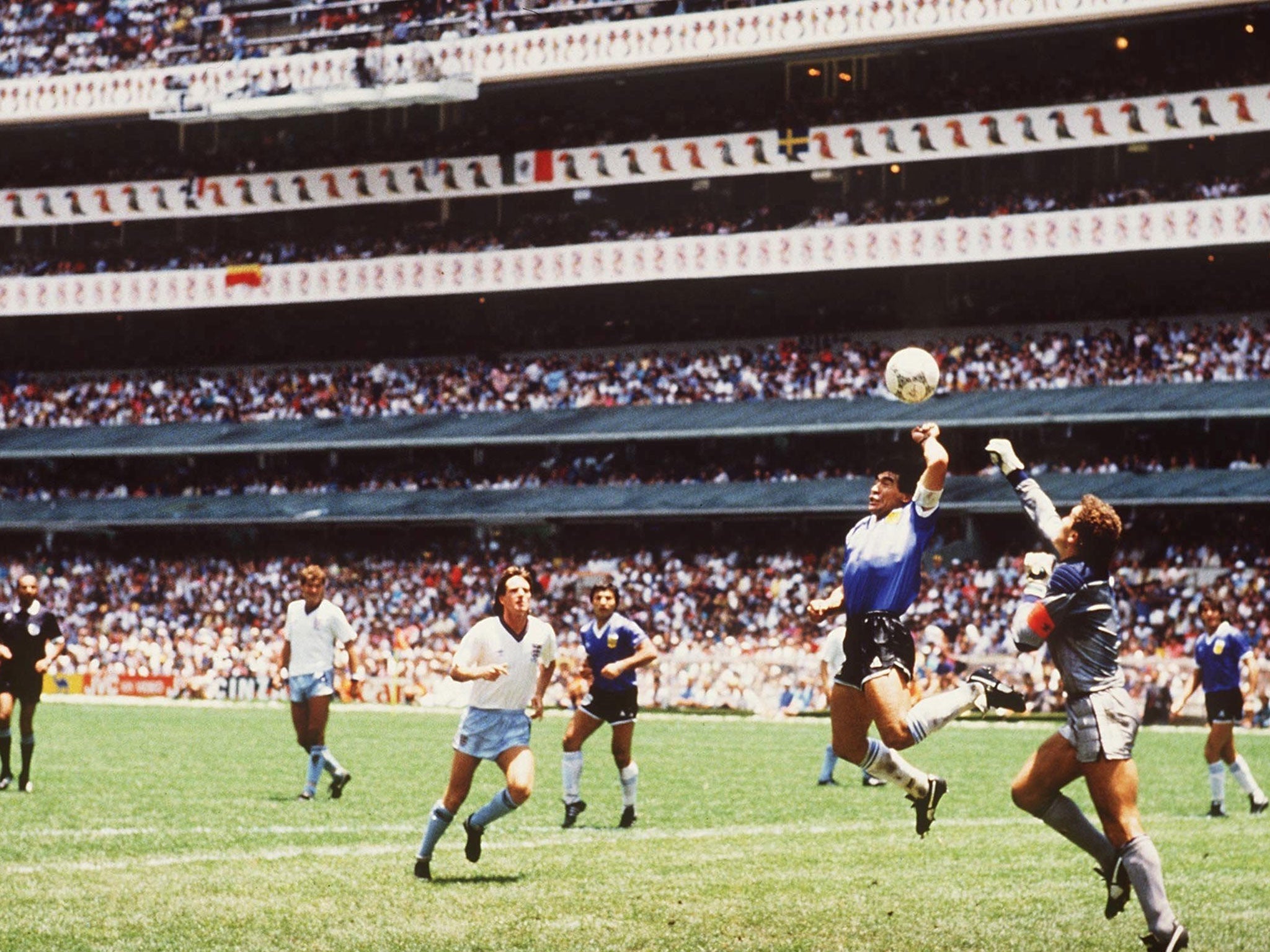
Your support helps us to tell the story
From reproductive rights to climate change to Big Tech, The Independent is on the ground when the story is developing. Whether it's investigating the financials of Elon Musk's pro-Trump PAC or producing our latest documentary, 'The A Word', which shines a light on the American women fighting for reproductive rights, we know how important it is to parse out the facts from the messaging.
At such a critical moment in US history, we need reporters on the ground. Your donation allows us to keep sending journalists to speak to both sides of the story.
The Independent is trusted by Americans across the entire political spectrum. And unlike many other quality news outlets, we choose not to lock Americans out of our reporting and analysis with paywalls. We believe quality journalism should be available to everyone, paid for by those who can afford it.
Your support makes all the difference.It was 30 years ago next week and they were certainly different times. The Football Association paid out £15-a-night for rooms at a poky Mexico City hotel and put two England players in each one. Live television coverage was still so tolerable to players that Gary Lineker, up front that day, agreed to stand on the Azteca Stadium pitch before the game and have the ITV cameras film him saying: "Be sure to join us here on ITV after the break."
What happened after the commercials became so embedded in the psyche of English football that those who witnessed it on the screen imagine we remember it all frame by frame. England v Argentina – a World Cup quarter-final played in the shadow of the Falklands War and decided by a waft of Diego Maradona’s left hand and the same player’s 40-yard slalom run through Bobby Robson’s midfield which remains perhaps the most outstanding tournament goal of all time.
“Maradona turns, like a little eel, and comes away from trouble; a little squat man. Comes inside Butcher. Leaves him for dead. Outside Fenwick. Leaves him for dead and puts the ball away. And that is why Maradona is the greatest player in the world. He buried the English defence. It’s a goal of great quality from a player of the greatest quality…” Such was the way BBC radio’s Bryon Butler called it in his indelible West Country burr.
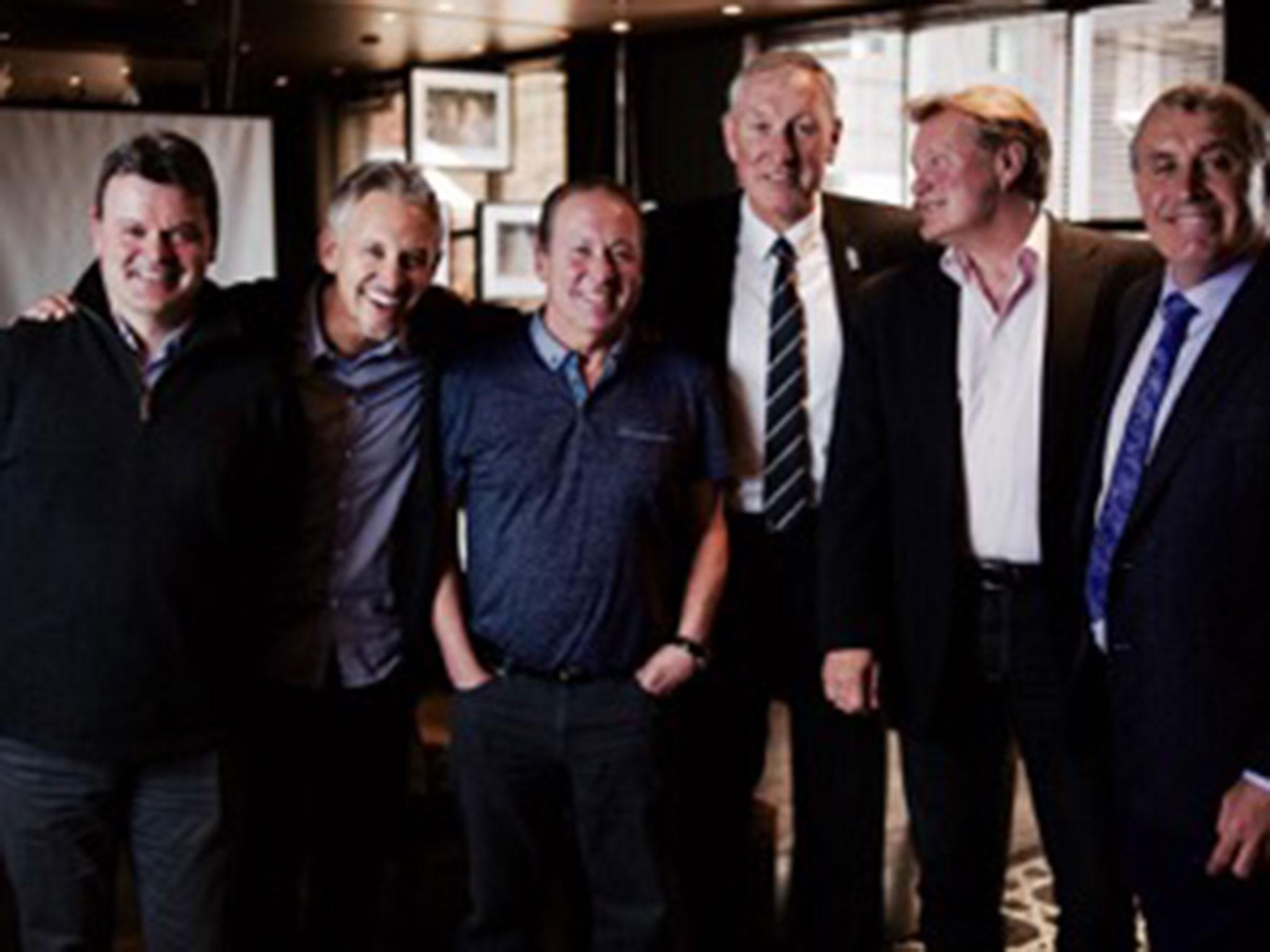
The iniquity and majesty of the two goals has obscured in the collective memory the way England stormed back into the match, with the introduction of John Barnes and Chris Waddle, and the way Lineker, having pulled a goal back, so nearly equalised when fastening his head on to the Liverpool player’s 87th-minute cross. (Julio Olarticoechea’s positioning which saw Linker’s effort cannon off his own head and away was a feat of gymnastics.)
The caravan moves on, however. The full story of most extraordinary events does not always get out. That is what makes the testimony of contributors to a re-telling of the events of 22 June 1986 - in a documentary "La Mano de Dios" (The Hand of God) to be broadcast on the anniversary next week - so absorbing.
The independent sports filmmakers, Goalhanger, have brought back together six of the participants – Lineker, Peter Shilton, Glenn Hoddle, Terry Butcher, Kenny Sansom and Steve Hodge – to revisit the match and the Mexico ‘86 campaign. The enterprise uncovers the remarkable fact, generally unknown, that Maradona admitted within half an hour of the game’s conclusion that he had used his hand. The admission came after Butcher had been told it was his turn for the routine post-match drug-test and walked into the medical room to find Maradona had also been selected. “Hand or head,” Butcher asked Maradona, gesturing. Maradona pointed to his hand. Butcher’s team-mates, assembled around a table in central London by the filmmakers, are astonished to hear him say this. All these years and Butcher never thought to mention it.
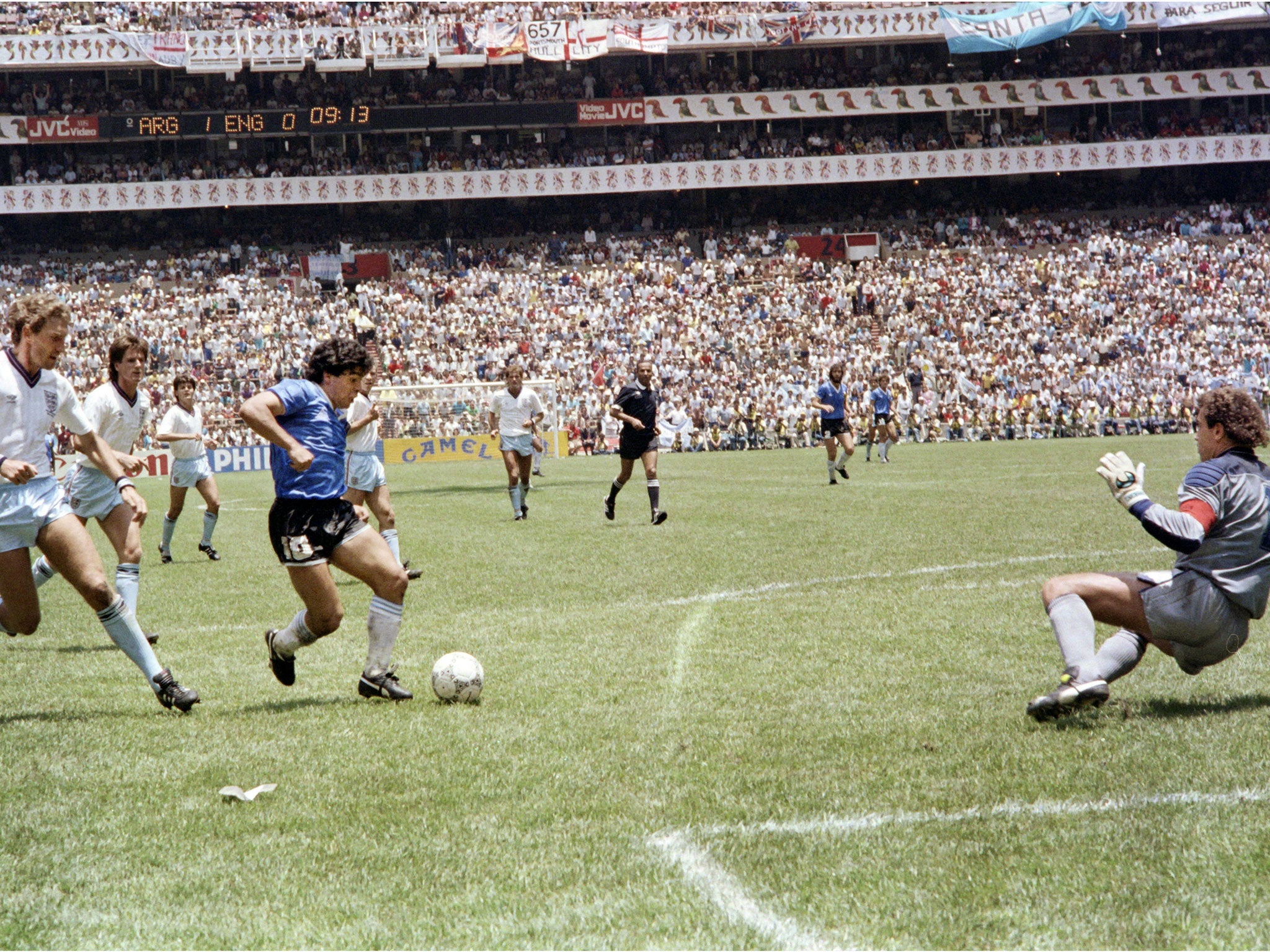
The film also reveals the very complicated role Steve Hodge played in this piece of football history. It was his sliced defensive clearance, Shilton and Lineker always thought, which sent the ball looping up into the space where Maradona reached up for it.
Not so, Hodge reveals. It was an attempted lofted back pass to Shilton, he says - those being the days when returning the ball to the goalkeeper was legal. Considering the circumstances, that was an extraordinarily audacious manoeuvre. In the enormous seconds which followed Hodge’s intervention, he had no sight of goal and though aware of his team-mates’ talk of handball and injustice he does not appear to have appreciated the full extent of the crime until he returned to the dressing room. To the indignation of the rest of the players, Hodge walked in there having swapped shirts with Maradona. The film reveals his own justification for doing so though it is clear that Shilton has never been happy about it. The goalkeeper’s view certainly doesn’t change when it is pointed out to him that the shirt is now worth £300,000.
The film oozes 1986. There is the shockingly awful "We’ve Got The Whole World at our Feet" song; the tight England shorts; the players’ boom box, carried into Estadio Technologico in Monterrey by Butcher. It fatefully happened to play Simple Minds’ "Alive and Kicking" at the requisite moment, with England facing ignominy if they could not beat the Poles in the last group game. There is the Jimmy Greaves pre-match analysis of the Paraguayans, whom England faced in the round of 16. “We know nothing about them, do we?” he asked his studio partner Ian St John.
We are reminded what an extraordinary striker Lineker - whose hat-trick in half an hour against Poland brought the immediate approach to him from Barcelona which would later see him join them for £2.8m - really was.
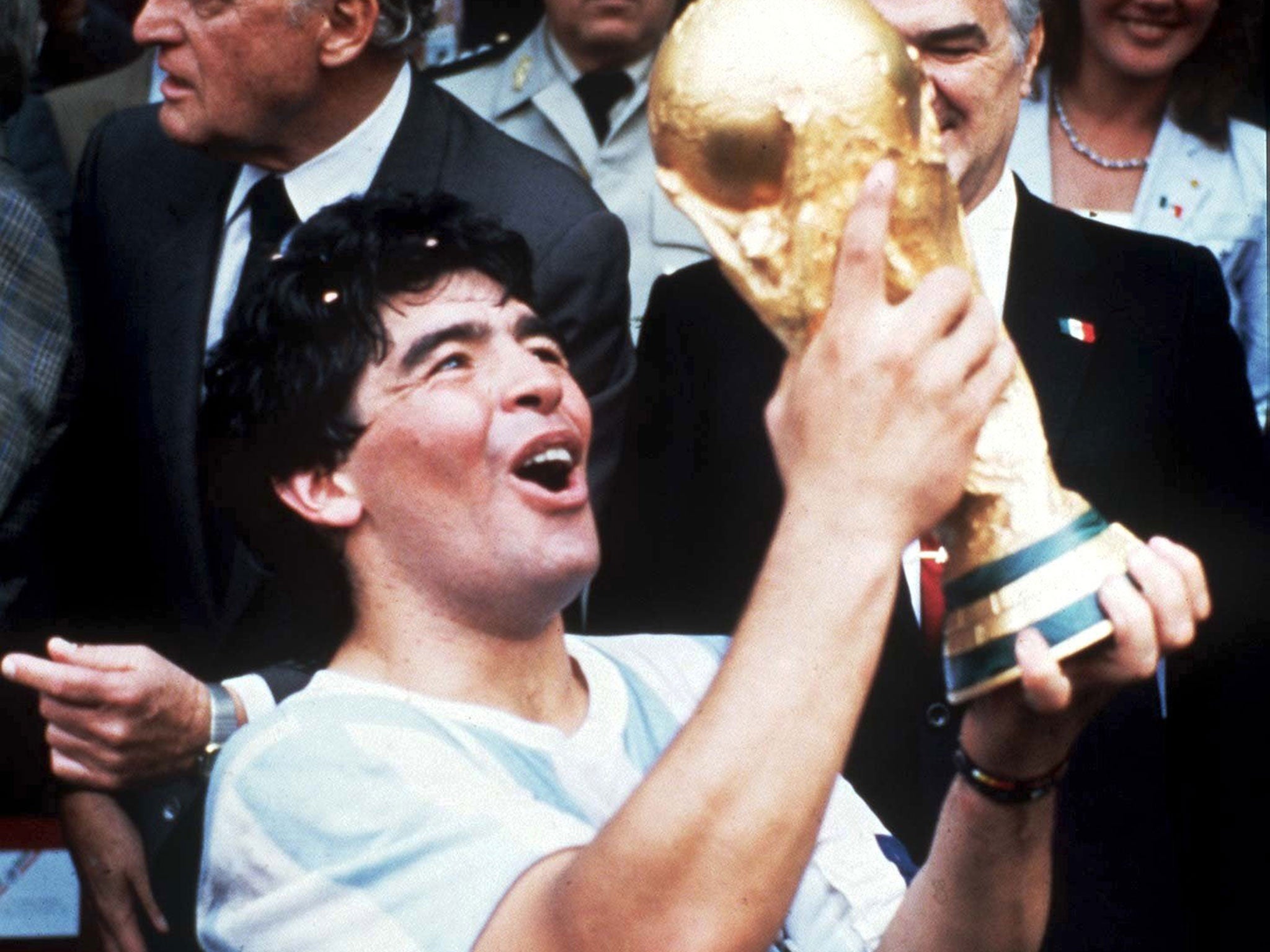
And in the footage and the memories we see what an exceptionally special manager Robson was, too. He was Churchillian when he needed to be, funny when he didn’t intend to be. He was a broadcaster’s dream with his easy-going style and live two-ways with St John and Brian Moore back in London, yet so deft at avoiding the muddy waters of a diplomatic incident when asked about the Falklands, before the quarter-final. “Don’t ask me anything about the diplomatic situation, OK? Don’t waste my time,” he told journalists who probed.
Maradona’s galaxy of talents really needed no elaboration, though this film is a rare journey into the mindset of a defender and goalkeeper trying to oppose him. The impressive description Shilton and Butcher provide of how they tried to deter the slalom run reveals how many ways of deterring opponents the Maradona brain managed to compute simultaneously. Butcher wanted to make the final and tackle and did attempt it, but the little dynamo had purposefully shaped his body to hide the ball from him.
“What’s really interesting is that the six players who took part have slightly different perspectives on the match and the key moments,” says executive producer Tony Pastor, whose Goalhanger outfit also produced the biopics of Wayne Rooney and Kevin Pietersen to which both contributed extensively, last year. “There were very significant details they didn’t know until they took part in our filming."
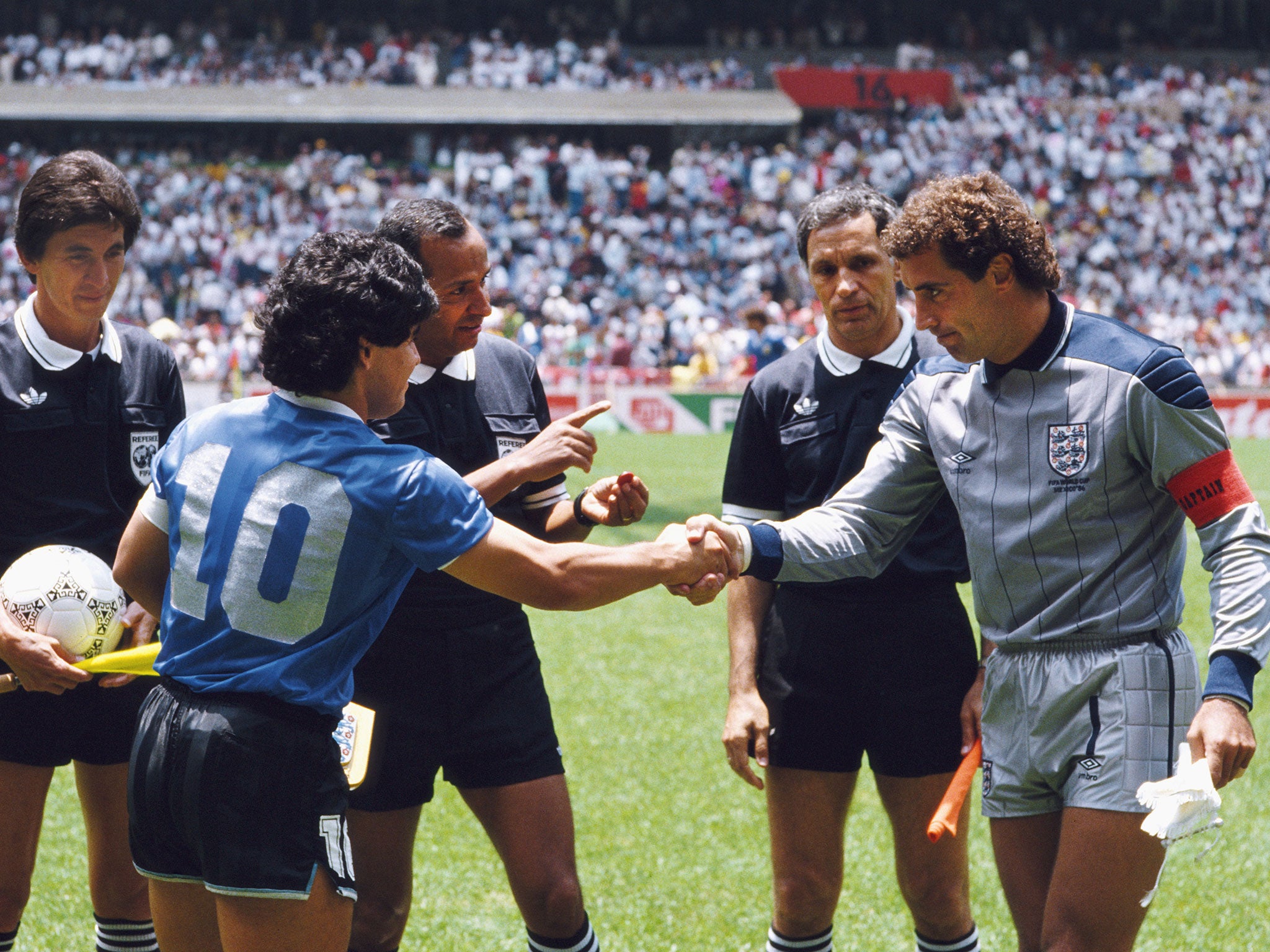
Those six players were destined to tread many more football fields after the Azteca but what strikes home most is that the Mano de Dios moment (those were Maradona’s words: he defined and committed the felony) haunted and lived with them more than any other. “It will until my dying days,” Hoddle tell the filmmakers. Shilton’s bitterness with Maradona has clearly never gone. Sansom’s late mother was flown out to Mexico City to see her son that day. She may have gone to her grave with an entirely different memory, had it not been for the crime.
It is Lineker who seems to have the fullest of appreciation that genius often is flawed, perhaps malevolent, and that this is what creates the great stories and imbues sport's narrative with its wonderful degrees of light and shade. “Diego?” he reflects. “I like Diego. I have to confess.”
‘La Mano de Dios’ (The Hand of God) screens on Wednesday, the 30th anniversary of the game, at 10.15pm on ITV4, at the conclusion of ITV’s coverage of Republic of Ireland v Italy
Join our commenting forum
Join thought-provoking conversations, follow other Independent readers and see their replies
Comments